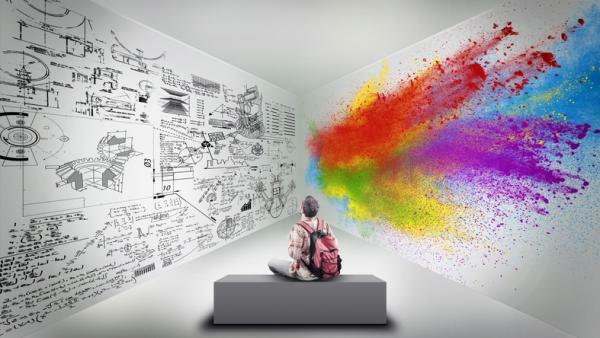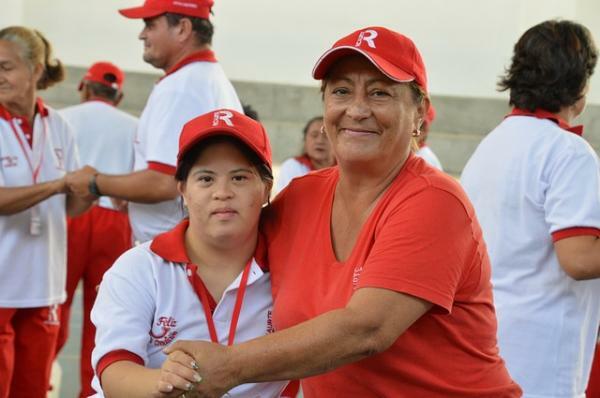
When we talk about cognitive processes, we refer to all those mental functions that allow us to receive, store and process all that information that comes to us from the environment. This process is basic and fundamental in human beings because thanks to it we can perceive, understand and interact better in the environment that surrounds us.
All these mental processes have as a background the involvement of millions of neurons that are connected to each other and that allow us to process information in an appropriate way. In this Psychology-Online article, we will talk about the Basic and higher cognitive processes: examples and types, we are going to know in detail what each one of them consists of.
All of us have certain cognitive habilyties which allow us to carry out our daily tasks, such as knowing where we are going, perceive the changes that occur in our environment, put the focus of our attention where we want it, make simple and important decisions, remember what we have to do during the day, recognize the sounds, calculate how much we have to pay when making the purchase, among many other basic and indispensable actions in our lives everyday.
Basic cognitive processes are extremely important since they are the basis that will allow us to receive the information, store it and use it to later be able to carry out the cognitive processes superiors.
Sensation and perception
It's about the way we feel and perceive the world through our senses without apparent effort. We can receive information from our environment and also from our own body, which allows us to interpret everything that we perceive and understand in a coherent and organized way the environment and our own reality. Thanks to our senses we can know the different types of objects that exist in the world, perceive images, sensations, among many other things which is an immediate source of knowledge.
- Example: Through the sense of sight we can observe a large number of visual scenes that allow us to know our environment (objects, people, signs, symbols, etc.) Our sense of hearing allows us to hear a wide range of sounds that exist in our environment (sounds, volume, timbre, etc.)
Memory
As we all know, memory allows us to find answers to certain questions such as knowing our own date of birth, remember events that happened in the past, what they just told us a few moments ago, among many other things. Memory is what allows us analyze and organize the information that we receive from abroad to later retrieve it at the time we want it. It is worth mentioning that there are different types of memory such as sensory, long and short-term memory, working memory, semantics, autobiography, among others.
- Example: Some examples of what sensory memory would be is we perceive a smell in the environment and this makes us remember an event that happened to us in the past that was significant for us. Another example may be when we listen to a song and it reminds us of a specific person or event that has marked us in a certain way.
Attention
This basic cognitive process refers to our ability to concentrate in a large number of stimuli, as well as in those that are of our special interest. Fortunately, people do not need to be paying attention all the time to all the stimuli that appear in our environment because because there are some that are automated due to their constant repetition, such as the action of walking, breathing, chewing, among other However, there are times when our degree of attention and concentration must increase and this requires a greater conscious effort.
- Example: When a friend has something important to say to us, so we decide to stop paying attention to stimuli from the environment and strive to focus solely on what our friend is saying. Another example would be when we are asked in class or at work to present a specific topic and we have to put all our concentration on it.

The higher cognitive processes They are the ones that are carried out after the basics and are in charge of integrating the information that is already available to the maximum. These are generally conscious processes and require a greater mental effort to carry them out. Therefore, we are going to describe the most important cognitive processes in education.
Thought
It is a mental process that is responsible for reasoning, take decisions, solve the problems of everyday life, among many more functions due to its complexity and heterogeneity. In order to carry out all these actions, we need to create concepts in our mind, organize our ideas, group objects, people, among other elements.
- Example: When we want to make the decision about which university degree to study, we begin to organize our ideas and have thoughts where we analyze the pros and cons of opting for a certain career and not for other. Finally, we make the best decision that suits our way of being and the goals we intend to achieve in life.
Language
Language is the ability that all human beings have to emit and understand different types of sounds and words that They come from abroad in combination with a large number of phrases and letters in order to understand each other and communicate with others. people.
Apart from verbal language, there is also the body language which is what we communicate with the body through our postures and our gestures, which can also be interpreted by our interlocutor. The development of both types of language continues to develop practically throughout our lives.
- Example: We can perceive verbal or body language, for example, when a person is telling us something that does not really interest us much but we cannot tell him to stop talking. The person may notice that he is not interested in what he is saying through our body language as we would probably start to yawning, we would divert our gaze to the other side, our feet would be pointing the other way and not towards the person who is talking, etc. which would denote a lack of interest. Discover here some types of non-verbal communication.
Other types of higher cognitive processes
The human being is characterized by having a mind capable of processing stimuli and generating responses from said processing. Our higher cognitive processes are very varied and there are more types in addition to language and thought.
Some types of higher cognitive processes are the following:
- Motivation
- Learning
- Motivation
- Imagination
- Creativity

Intelligence is one of the main concepts of study of psychology, so that an infinity of psychologists over time have been reflecting, arguing and making their own conclusions about what intelligence is. Finally, today, it has been concluded that intelligence is not composed of only one type of ability or aptitude to be able to define it, from here arises one of the theories that has had a greater acceptance about this concept.
Multiple intelligences
The Gardner's theory of multiple intelligences refers to the fact that because there is no single type of intelligence, different capacities of the person have to be taken into account in different areas. Therefore, he divided intelligence into the following types: intrapersonal, interpersonal, linguistic, musical intelligence, among others. So each person may have some type of intelligence more developed than others since they also It is considered that this mental process is not static and that it can be developed throughout the weather.
- Example: A person can have a highly developed musical intelligence so that he is capable of learning faster and better read musical notes, as well as learn to play one or more instruments musicals. However, he does not have very developed interpersonal intelligence so he has problems when it comes to interacting with other people because he has few social skills. you want to know what intelligence do you have developed? can you do click in this link with a curious multiple intelligences test.
This article is merely informative, in Psychology-Online we do not have the power to make a diagnosis or recommend a treatment. We invite you to go to a psychologist to treat your particular case.


